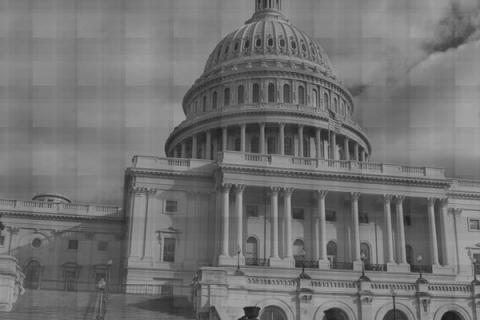
Victor Davis Hanson offers some bad advice in his column where he hopes for a rehabilitation of the forty-third president, but he also doesn't understand why people disliked Bush:
"At times the venom accorded Bush in popular culture reached absurd - and even sick - levels. . . ."All that hysteria once led to Charles Krauthammer's identification of 'Bush Derangement Syndrome' - a pathology in which the unbalanced seemed to channel all their anxieties, frustrations, and paranoias onto George W. Bush. . . .
As a so-called intellectual of the conservative movement, Hanson's column is actually a good view into the tone-deafness, epistemic closure, and aimlessness of the modern Republican Party.
There are many things worth criticizing the Democratic president over: the continuation of the Patriot Act, drone bombings, prosecution of whistleblowers, bailing out private industry, his corporatism, and the reappointment of Ben Bernanke, just to name a few.
But to a great extent, Obama's use of Air Force One, D'Souza-ism, and whether the president called the September 11, 2012 incident in Benghazi "terrorism" were much more important to conservatives than what he's done to American liberty. Nobody calls it "Obama Derangement Syndrome," but the "pathology" Hanson quotes was simply a long-winded way of saying "partisan."
Yet in Hanson's estimation, the problem with Bush was that Democrats (and anyone else opposing him) had "paranoias." It was not because Iraq was a war justified on questionable premises that cost over 4,000 American lives and created a new dictator or that the 2008 financial meltdown was simply a set-back easily corrected by the Federal Reserve and taxpayer-funded bailouts. Democrats might have had some questionable critiques of Bush, but in Hanson's mind, opposition to incompetence in the conduct of war is simply a paranoia.
It's unfortunate that political liabilities don't have a "Best Exploited By" date, but Obama blames Bush because it works and if Republicans don't get that Bush encouraged an "ownership society," then complaining that it's not all Bush's fault is akin to saying only one arsonist on a team of arsonists is responsible for a fire.
I've said for awhile that a Bush rehabilitation would be a bad thing for the GOP as well as conservatives for at least two reasons.
One, if we look back wistfully at Bush it means that his successors have been so abusive with executive power that we long for the days of simple warrantless wiretapping and shoe removal at the airport.
Two, historians are notoriously liberal and routinely award the executives who made the most expansive use of state power with prominent spots on their lists. If Bush 43 is someday rewarded as one of the Great Presidents, it will only be because academics shed the partisan frenzies of the day and realized Bush was quite liberal in most of his executions and not because he was a conservative. The irony here is that if conservatives like Hanson realize their wish, it's really a confirmation that they were blindly supporting a liberal all throughout the first decade of the Twenty-First Century.
Bush genuinely unified the country on 9/11 and in the days immediately following. It's hard not to feel a chill upon seeing Bush with the bullhorn and his pitch at Yankee Stadium. If an assassin's bullet slew Bush in the Bronx that night, he would have been lionized as an American hero cut down before realizing his destiny.
But that's not what happened and it's because the Bush legacy didn't end late in 2001 that he is a political pariah. 2002 through 2009 happened.
Bush is currently consigned to the bottom of most presidential lists and that's where he belongs and it's where conservatives should hope he stays. There were scandals, corruption, seeming disinterest, and gross incompetence. If Victor Davis Hanson wants to see Bush rehabilitated, it means that wars like Iraq, unfunded liabilities like Medicare Part D, bureaucratic failures like Hurricane Katrina, and the conditions that led to the financial meltdown are actually good policy prescriptions that can be easily forgiven and papered over.
